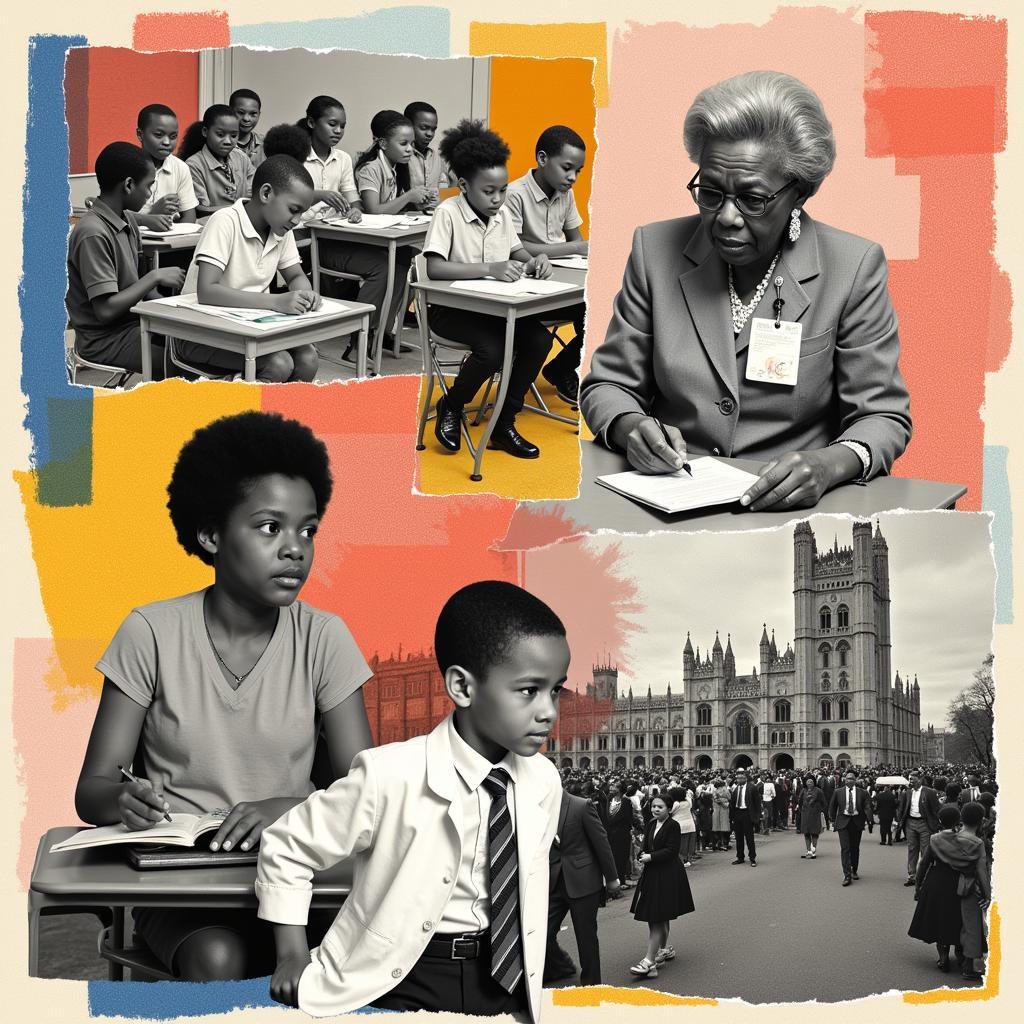The Great Society, a set of ambitious domestic programs launched by President Lyndon B. Johnson in the 1960s, aimed to tackle poverty, inequality, and social injustice in America. The impact of these programs continues to resonate today, making it a popular topic for students and history enthusiasts alike. For those seeking a comprehensive understanding of this transformative era, the “Great Society Quizlet” serves as a valuable resource. This article delves into the significance of the Great Society, explores its key initiatives, and examines its lasting legacy on American society.
The Genesis of the Great Society
The seeds of the Great Society were sown in the turbulent yet hopeful atmosphere of the early 1960s. Following the assassination of President John F. Kennedy, Lyndon B. Johnson assumed the presidency, inheriting a nation grappling with racial tensions and economic disparities. Johnson, a skilled legislator with a deep understanding of poverty, envisioned a society where all citizens had the opportunity to thrive.
Key Pillars of the Great Society
The Great Society encompassed a wide range of programs targeting various aspects of American life. These initiatives were grouped under broad themes, including:
1. War on Poverty: This cornerstone of the Great Society aimed to alleviate poverty through initiatives like the Economic Opportunity Act of 1964, which established programs like Head Start, Job Corps, and VISTA (Volunteers in Service to America).
2. Education Reform: Recognizing education as the key to upward mobility, the Great Society implemented programs like the Elementary and Secondary Education Act of 1965, providing federal funding to schools in low-income areas.
3. Healthcare Expansion: The creation of Medicare and Medicaid in 1965 expanded access to healthcare for millions of elderly and low-income Americans, marking a significant step towards universal healthcare.
4. Civil Rights Advancement: Building on the momentum of the Civil Rights Movement, the Great Society passed landmark legislation like the Civil Rights Act of 1964 and the Voting Rights Act of 1965, dismantling segregation and ensuring equal rights for all citizens.
5. Environmental Protection: Recognizing the importance of environmental stewardship, the Great Society enacted laws like the Clean Air Act of 1963 and the Wilderness Act of 1964, laying the groundwork for future environmental regulations.
 A collage illustrating the impact of the Great Society programs
A collage illustrating the impact of the Great Society programs
Legacy of the Great Society
The Great Society left an indelible mark on American society, transforming the lives of millions. While its ambitious goals were not fully realized, the programs enacted during this era continue to provide essential services and opportunities to countless Americans.
“The Great Society was a bold experiment in social engineering, aiming to create a more just and equitable society,” says Dr. Emily Carter, a historian specializing in 20th-century American history. “While it faced its share of challenges, its legacy lies in the lasting impact it has had on poverty reduction, education reform, and access to healthcare.”
Exploring the Great Society Quizlet
The “Great Society Quizlet” provides a valuable tool for students and researchers seeking to delve deeper into this transformative era. This online resource offers flashcards, quizzes, and study guides covering key events, figures, and programs of the Great Society. By utilizing this resource, individuals can gain a comprehensive understanding of the motivations, successes, and challenges of Johnson’s ambitious social agenda.
Conclusion
The Great Society stands as a testament to the power of government to effect positive social change. While debates continue about its effectiveness and long-term impact, its legacy lives on in the programs that continue to shape American society today. The “Great Society Quizlet” serves as an invaluable resource for those seeking to learn more about this pivotal period in American history.
FAQs
1. What were the main goals of the Great Society?
The Great Society aimed to eliminate poverty, reduce racial injustice, improve education, expand access to healthcare, and enhance environmental protection.
2. What were some of the most significant achievements of the Great Society?
Key achievements included the passage of the Civil Rights Act of 1964, the Voting Rights Act of 1965, the creation of Medicare and Medicaid, and the establishment of Head Start and Job Corps.
3. What were some of the criticisms leveled against the Great Society?
Criticisms included concerns about the cost of the programs, the expansion of government bureaucracy, and the effectiveness of some initiatives in achieving their intended goals.
4. How did the Vietnam War impact the Great Society?
The escalating costs of the Vietnam War diverted resources and attention away from domestic programs, hindering the full implementation of the Great Society’s agenda.
5. What is the lasting legacy of the Great Society?
The Great Society left a lasting legacy through its contributions to civil rights, poverty reduction, education reform, and healthcare expansion, shaping the social safety net and influencing public policy for decades to come.
Need Help?
For further information and support on social justice and peace-building efforts, please contact us:
Phone: 02043854663
Email: [email protected]
Address: Khu 34, Bắc Giang, 260000, Vietnam
Our dedicated team is available 24/7 to assist you. Let’s work together to build a more peaceful and just world for all.